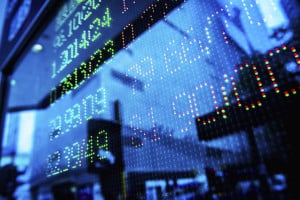Massachusetts’ jobless numbers jumped by another 139,582 workers last week, according to information released Thursday morning by the federal Department of Labor.
That bleak figure is down nearly 42,000 from the 181,062 claims filed the week before, but Thursday’s number show Massachusetts has now exceeded its Great Recession record of 304,530 receiving unemployment insurance, set in January 2010. As of April 4, 306,580 were receiving unemployment insurance in the state after having filed unemployment claims for the second week in a row.
Massachusetts’ official unemployment rate of 5.1 percent, measured in the week ending March 21, is now the third-worst in the country after Rhode Island (6.7 percent) and Minnesota (5.6 percent). Connecticut and New Hampshire are also showing signs of being pummeled by the downturn, with unemployment rates of 4.9 percent and 4.2 percent, respectively, putting them also among the 10 states with the highest unemployment rates in the country.
A report published earlier this week by the Pioneer Institute suggested Massachusetts could see unemployment rates as high as 25 percent during the gathering coronavirus-caused recession. That would mean about 975,000 Massachusetts residents would be without work.
In contrast with Massachusetts’ relative slowdown in initial unemployment claims, the nationwide unemployment figures released Thursday are grim. Another 6.2 million filed initial claims, in line with the previous week’s tally of 6.6 million and in contrast to the 196,071 claims filed in the same week in 2019. America now has 8.17 million people who are receiving unemployment insurance, a 4.76 million-person increase from last week and in sharp contrast to the mere 1.86 million who were receiving unemployment insurance in the same week last year.
Adjusted to take into account normal seasonal variations in the economy, the numbers show the country is now experiencing the highest number of people receiving unemployment insurance since seasonally adjusted record-keeping began, far outstripping the national high set in May of 2009 in the depths of the Great Recession.







